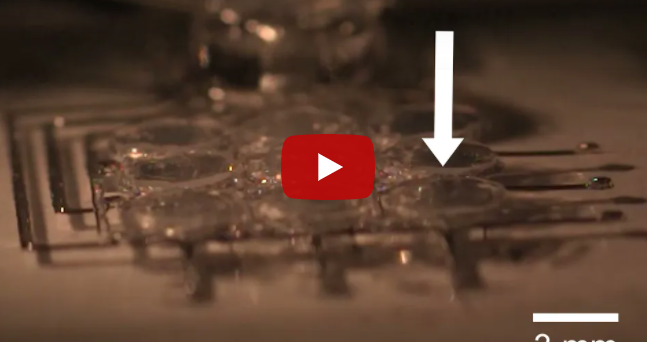Louis Braille, a French educator (1809 -1852), invented a reading and writing system for the visually impaired that remains virtually unchanged to this day and is known worldwide simply as braille.
He was born in Coupvray, a small town about 32 kilometers east of Paris. Tragically, he was blinded in one eye at the age of three as a result of an accident with a stitching awl in his father’s harness-making shop. An infection set in and spread to both eyes, making him completely blind.
Due to his young age, Braille did not realize at first that he had lost his sight and often asked why it was always dark. His parents made many efforts – quite uncommon for the time – to raise their youngest child in a normal fashion, and he advanced in their care. He learned to navigate the village and country paths with canes his father made for him and grew up seemingly at peace with his disability.
At that time, although there were not many resources for the blind then, Braille excelled in his education and received a scholarship to France’s Royal Institute for Blind Youth. While still a student there, he began developing a system of tactile code that could allow blind people to read and write quickly and efficiently.
Inspired by the system invented by Charles Barbier, Braille developed a new method that was more compact and adapted to a range of uses, including music and presented his work to his colleagues for the first time in 1824.
Braille was determined to invent a system of reading and writing that could bridge the gap in communication between the sighted and the blind. “Access to communication in the widest sense is access to knowledge, and that is vitally important for us if we [the blind] are not to go on being despised or patronized by condescending sighted people,” he wrote. “We do not need pity, nor do we need to be reminded we are vulnerable. We must be treated as equals – and communication is the way this can be brought about.”
Braille served as a professor at the Institute and had an avocation as a musician, but he largely spent the remainder of his life refining and extending his system. Although Braille was admired and respected by his pupils, his writing system was not taught at the institute during his lifetime. Through the overwhelming insistence of the blind pupils, Braille’s system was finally adopted by the Institute in 1854, two years after his death.
It went unused by most educators for many years after his death, but posterity has recognized braille as a revolutionary invention, and it has been adapted for use in languages worldwide.
This week, on January 4th, was World Braille Day marking Louis’s birthday. Although the Braille tactile writing system was invented about 200 years ago, there have been many technological challenges in adapting it to the computerized age.
New variations in braille technology continue to grow, including such innovations as braille computer terminals; RoboBraille email delivery service; and Nemeth Braille, a comprehensive system for mathematical and scientific notation. Almost two centuries after its invention, braille remains a system of powerful and enduring utility.
A recent breakthrough published in the Proceedings of the US National Academy of Sciences (PNAS) under the title “Valveless microliter combustion for densely packed arrays of powerful soft actuators” marks a new generation of compact and efficient Braille monitors. Findings by researchers at the Technion-Israel Institute of Technology in Haifa and Cornell University in New York present a “robotic Braille monitor” with a dynamic silicone surface and small Braille “bubbles” on top of it. The development is based on the flow of methane and oxygen into the silicon surface and the swelling of these “bubbles” using controlled micro-scale combustion and without any need for a pump.
Louis Braille would surely have been proud.
The study’s authors, Prof. Amir Gat and doctoral student Ofek Peretz from the Technion Faculty of Mechanical Engineering, are involved in broader research of soft robotics that draws much inspiration from biological tissue and natural organs such as an elephant’s trunk and an octopus’ arm, creating articulated robots, using flexible tubes actuated by internal fluids. The flow of the liquid into different patterns affects the flexible device in different ways, and a well-designed system can lead to precise movement and efficient control.
“Even in the rapidly accelerating digital age, the portable, electronic tactile display remains an unsolved actuation technology challenge. The design requirements associated with manufacturing arrays of closely spaced, small actuators are notoriously difficult to satisfy, shown by how currently available actuation strategies fail when implemented at the scale of braille dots,” the authors wrote. “Through experiments with a less common actuation method, microliter combustion in elastomers, we find that hyperelastic membranes can be forcefully and quickly displaced. Without valves, we can pack actuators more closely together to introduce a potential pathway toward powering a practical, portable, electronic haptic [relating to the sense of touch] display system.”
The shortcode is missing a valid Donation Form ID attribute.




